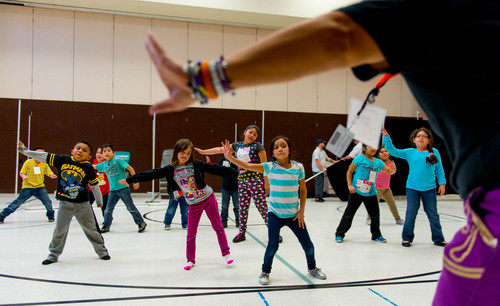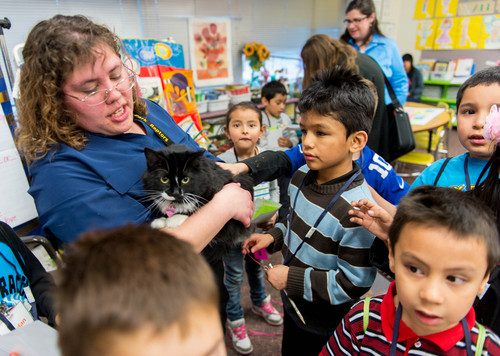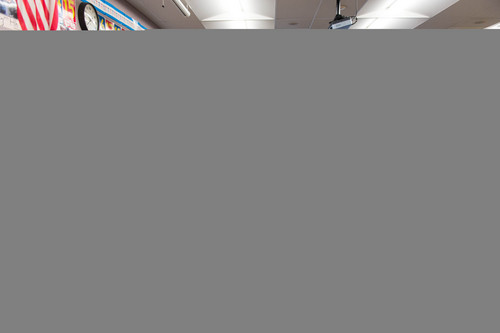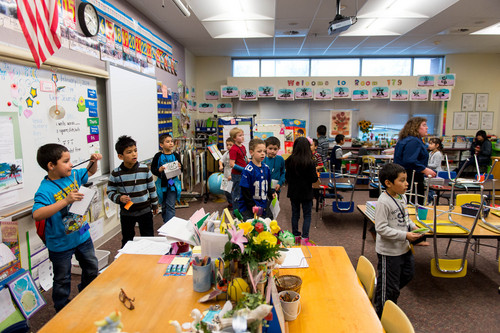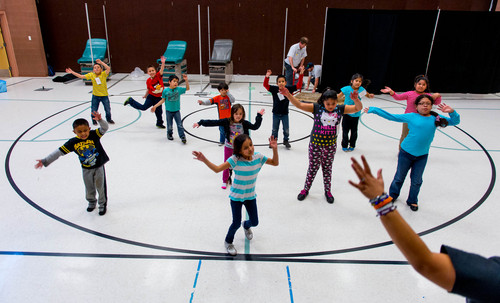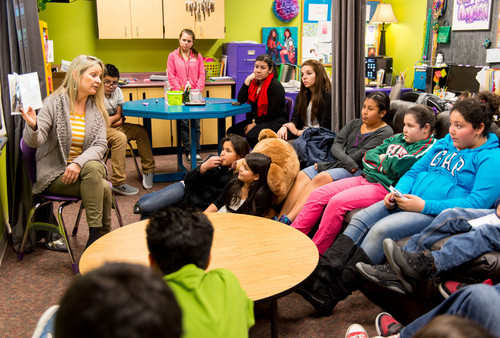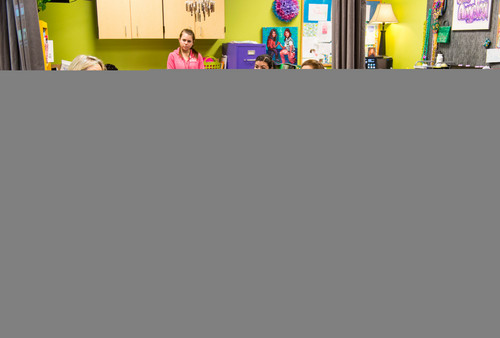This is an archived article that was published on sltrib.com in 2014, and information in the article may be outdated. It is provided only for personal research purposes and may not be reprinted.
After their school day ends, they don't watch TV, play video games or wander the neighborhood.
Rose Park Elementary kids learn about the chemistry of beauty products, the physiology of exercise or how to play the piano.
More than 180 kids attend Rose Park Academy, a new, unique afterschool program that's drawing national attention this week. On Thursday, representatives of the U.S. Department of Education and the National League of Cities visited the school to learn more about the Academy.
The idea behind the program — the first of its kind in the Salt Lake City School District — is to prepare kids for college by giving them a daily preview of what it would be like. Students take up to eight classes a semester, choosing what interests them from among dozens of options. They attend up to six days a week, several hours a day, mostly after school.
"It's important for them to learn who they are, what they like to do, to let them know they have a whole bunch of options," said Vanessa Paredes, the Academy's coordinator.
In Biochemistry and Beauty, girls learn about the chemistry behind beauty products, creating their own perfumes and lip glosses. In Cooking with Numbers, kids use fractions, percentages, conversions and decimals to whip up edible creations.
On Thursday, students in Kids Love Mystery roamed the hallways looking for clues as to where Chica the cat might be.
"This class is awesome. We have to find Chica," said kindergartner Angel Acosta before bolting off at the sight of the black and white cat in his teacher's arms.
Other classes include Arabic, soccer, book club, Zumba and guitar, among many others.
The Academy also offers a number of Spanish immersion classes — in dance, art, history and geography — responding to parents' desire to see their kids not lose what's often their first language, said Rose Park Elementary Principal Nicole Warren.
In the Academy, 65 percent of students are Latino. Sixty-three percent of the Academy's students live at or below the federal poverty income level.
Parents pay anywhere from $50 to $100 a semester, depending on need.
"We want people at the national level to know Title I schools, urban schools really, are schools of promise," said Joel Arvizo, community learning center manager at Rose Park Elementary. "We want to make sure that college is something normal. It's something attainable. It's something expected."
Arvizo said he and others saw a need for the program this year because of the low number of Rose Park kids who go on to college. The goal, eventually, is for the program to serve all the elementary schools in the Rose Park area, Arvizo said.
The program is funded largely by the district and the Salt Lake Education Foundation as well as through a number of grants and other foundations.
Robert Gomez, director of higher education outreach for the U.S. Department of Education, was one of the visitors to the school Thursday. He said he was particularly impressed with the program's focus on teaching Latino kids more about their cultures and language as well as hiring Latino instructors.
"You're giving students that sense of pride, I think," Gomez said. "You're able to clearly understand who your students are and their needs."
He said he's eager to share stories about what the Academy is doing when he returns to Washington, D.C.
Audrey Hutchinson, program director of education and afterschool initiatives with the National League of Cities, said she also plans to share what she's seen in Salt Lake City with leaders across the country.
"Much of what I've heard today tells me there are some really good best practices here," Hutchinson said.


